Networking at the COP began well before our arrival in Katowice. By the time we were on the bus to board the plane to Poland, it was clear that we were mostly all heading together to the COP. (Yes, I am as tired as I look in this photo!)
Ranier, my seatmate, works in International Climate Protection and Emissions Trading for EnergieAgentur NRW (short for NordRhein Westphalen, a western German state). He was flying in to help put on three side events: the first was happening at 4pm this afternoon in the Market square of Katowice, explaining the importance of the COP to the general public. This was his tenth COP! We talked about discouraging it was to see nations making irrational decisions both on climate and on other issues of governance. Ranier acknowledged the difficult regional politics leading to a slow-down in the shift to renewables in Germany.
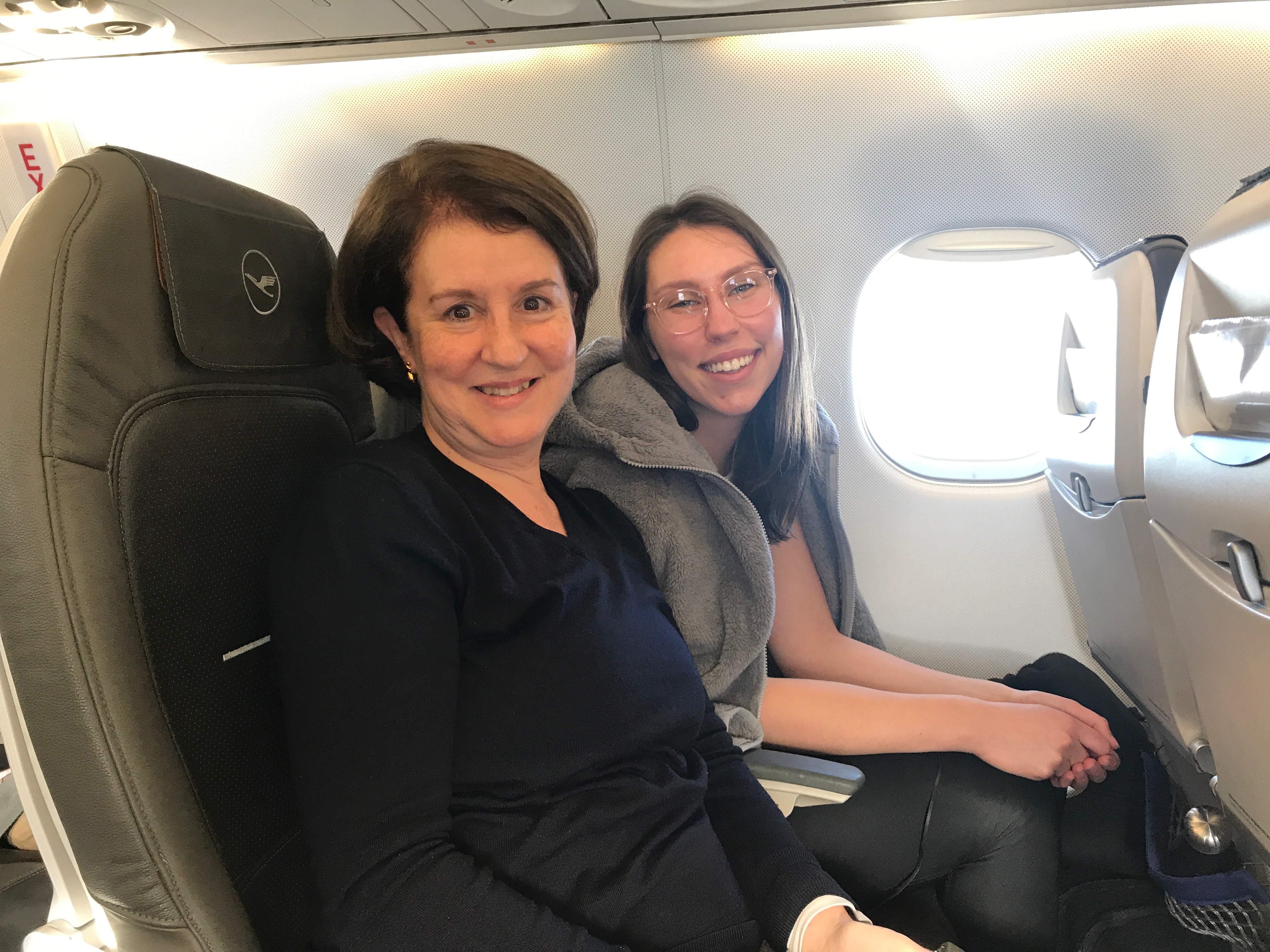 Across the aisle, Dr. Maria Francesch-Huidobro was flying in from Hong Kong, where she has lived and taught and worked for 31 years. She will be presenting at the WWF’s “Panda Pavilion” on the 13th about efforts in monitoring progress toward the Paris Agreements and also (I think) about sustainability efforts and collaborations of large Asian cities such as Hong Kong. Maria is a political scientist who has run environmental studies programs in Hong Kong and is now working with various think tanks, including “Carbon Care InnoLab, a charity for sustainability,” which provides a platform for young entrepreneurs to work on sustainability innovations. Maria and I talked loosely about the possibility of bringing her in via Skype for a guest lecture in some environmental studies classes. I was very taken with her charm, her breadth of knowledge and her good-natured teasing of our different nationalities. (Despite her decades of living in Hong Kong, Maria herself is Spanish, and her discussion of Brexit was hilarious. “The British, they have a mandate, and so they set everything aside, no matter if it means pounding their heads against the wall. In Spain, we don’t do this. We say, this is a bad thing, we won’t carry on. Teresa May, she says, ‘I will do this thing; I will be a martyr.’ ‘No, lady, no!'” Maria says, waving her hands, “Don’t be a martyr!”)
Across the aisle, Dr. Maria Francesch-Huidobro was flying in from Hong Kong, where she has lived and taught and worked for 31 years. She will be presenting at the WWF’s “Panda Pavilion” on the 13th about efforts in monitoring progress toward the Paris Agreements and also (I think) about sustainability efforts and collaborations of large Asian cities such as Hong Kong. Maria is a political scientist who has run environmental studies programs in Hong Kong and is now working with various think tanks, including “Carbon Care InnoLab, a charity for sustainability,” which provides a platform for young entrepreneurs to work on sustainability innovations. Maria and I talked loosely about the possibility of bringing her in via Skype for a guest lecture in some environmental studies classes. I was very taken with her charm, her breadth of knowledge and her good-natured teasing of our different nationalities. (Despite her decades of living in Hong Kong, Maria herself is Spanish, and her discussion of Brexit was hilarious. “The British, they have a mandate, and so they set everything aside, no matter if it means pounding their heads against the wall. In Spain, we don’t do this. We say, this is a bad thing, we won’t carry on. Teresa May, she says, ‘I will do this thing; I will be a martyr.’ ‘No, lady, no!'” Maria says, waving her hands, “Don’t be a martyr!”)
Beyond Maria, Olivia Reshetylo is flying in from Vancouver, where she works with Student Energy, a group that works on teaching energy literacy to college students. I think she said the group is composed of 50,000 students now and just starting to expand into the USA, currently at Berkeley, Stanford, and Rhode Island. Perhaps Swarthmore next!
As we came close to landing, I was struck by the monoculture woods near the city.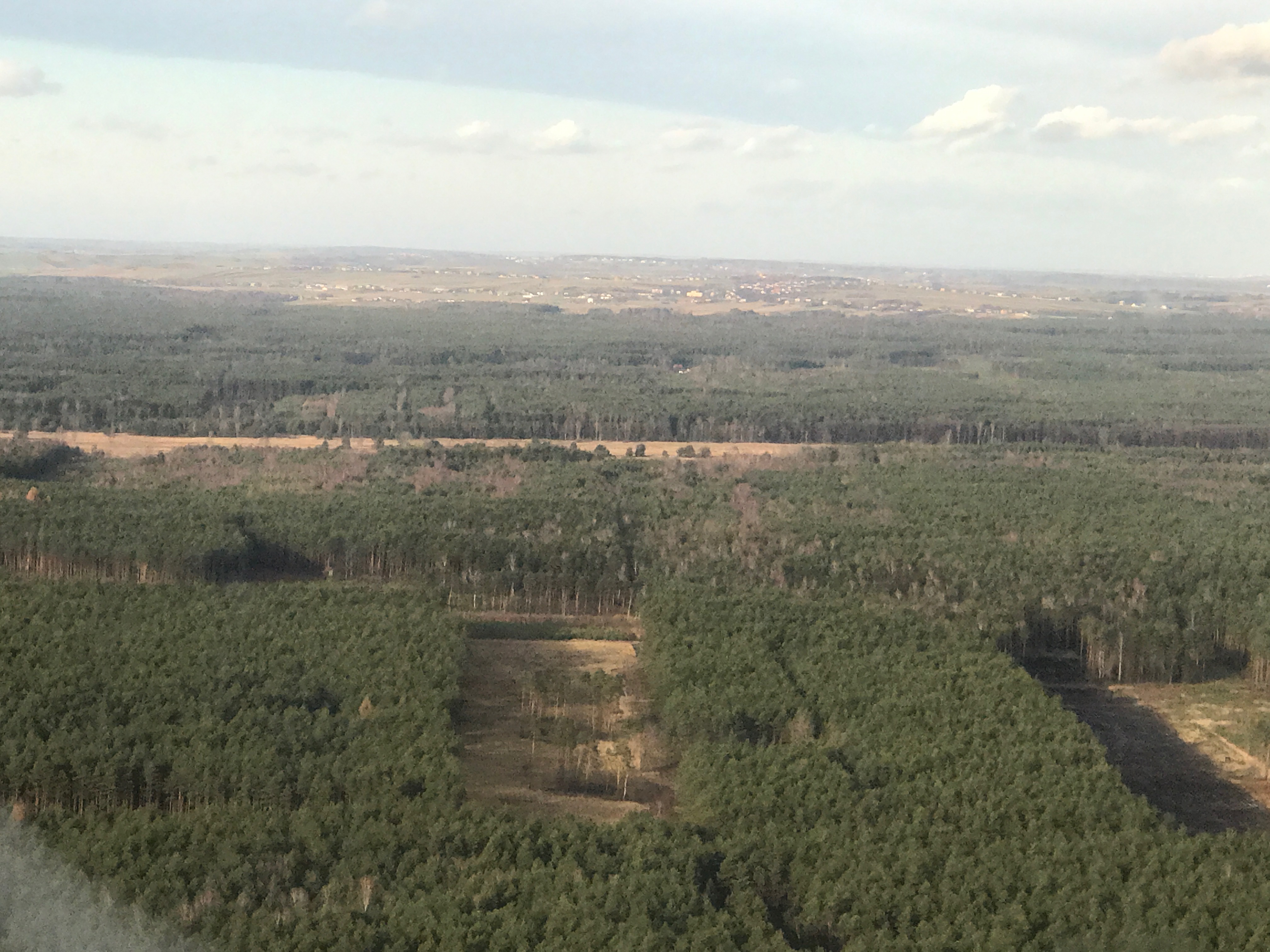 “You can see,” said Ranier, “why wood is so important to the Poles.” This visual image did indeed give a different kind of context to ongoing debates about whether or not biomass or biomass + coal should be included as a pathway for low emissions. (The Climate Action Network, for instance, points to evidence that biomass is worse for the climate in the short term than fossil fuels.)
“You can see,” said Ranier, “why wood is so important to the Poles.” This visual image did indeed give a different kind of context to ongoing debates about whether or not biomass or biomass + coal should be included as a pathway for low emissions. (The Climate Action Network, for instance, points to evidence that biomass is worse for the climate in the short term than fossil fuels.)
Once we were on the ground, we looked around for transport. Other, more experienced COP attendees insisted that there would be free public transport to the meeting, but that turned out not to be the case. Quite a lot of head-shaking and clucking ensued. Melissa called an Uber for our four-person delegation to get into the city.
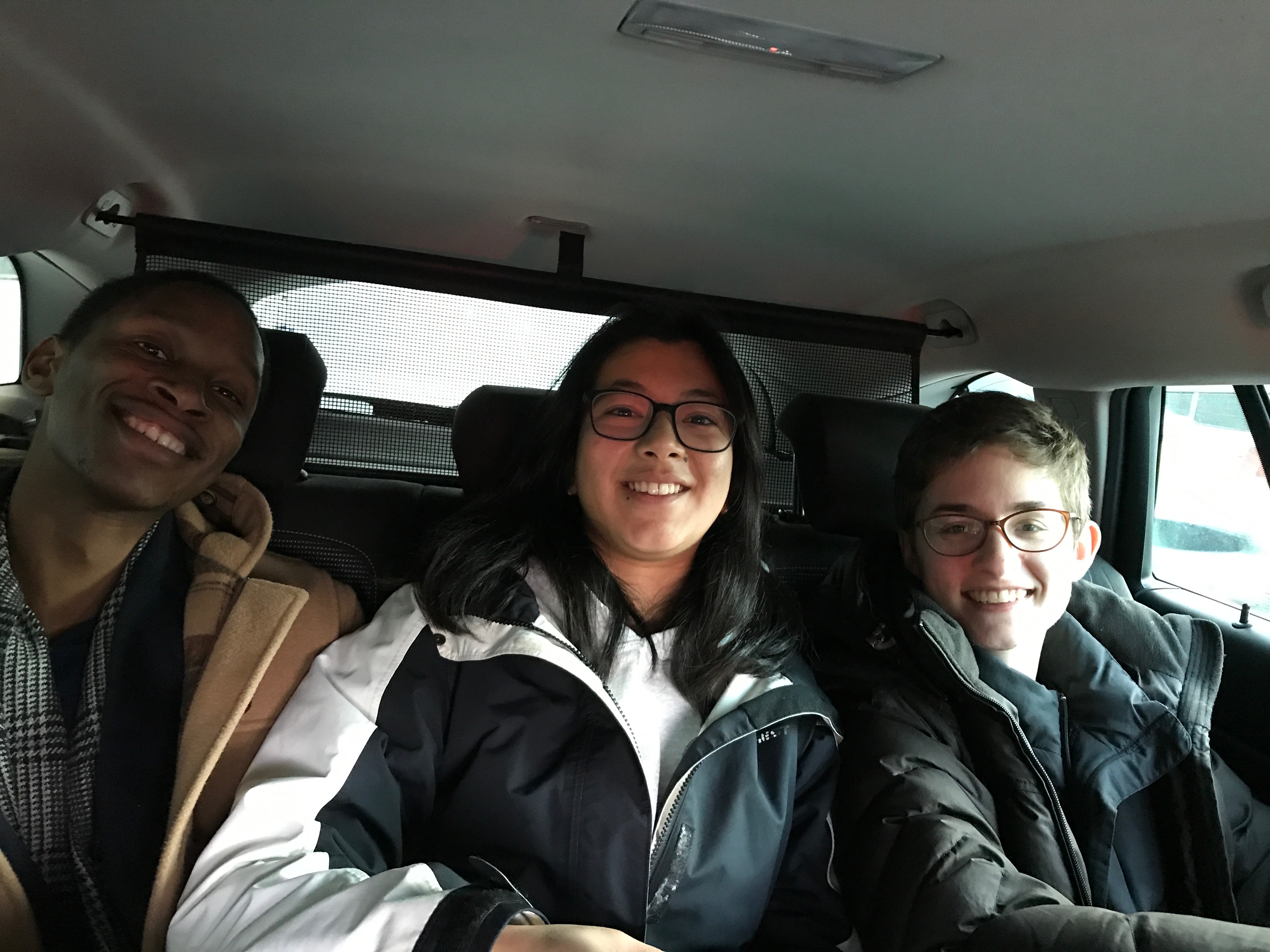
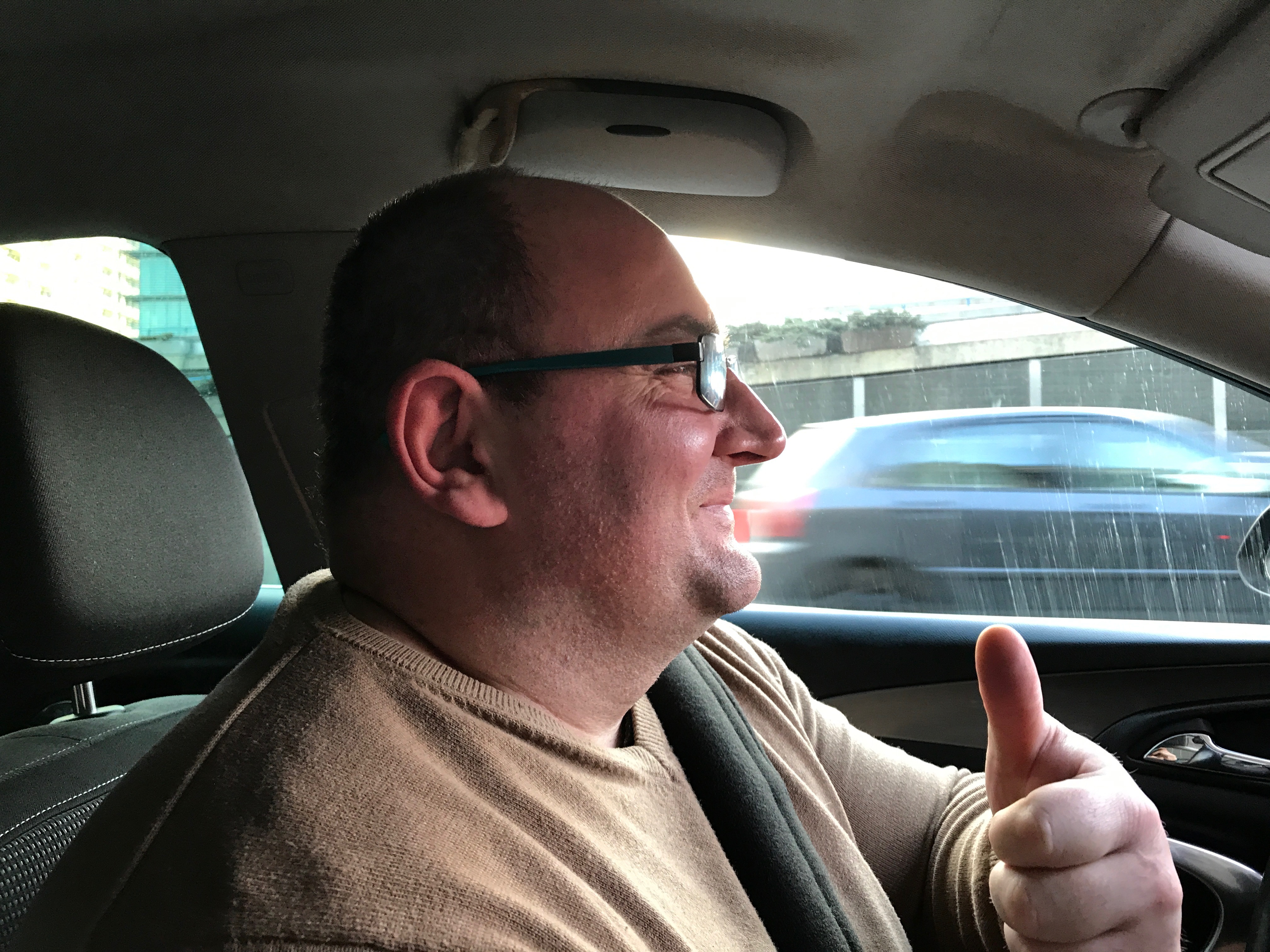 Martin drove us in: he was very patient with my attempts to speak Polish with him, as well as our inability to work out how to ask basic questions, such as, “Was that a quarry we saw from the sky?”
Martin drove us in: he was very patient with my attempts to speak Polish with him, as well as our inability to work out how to ask basic questions, such as, “Was that a quarry we saw from the sky?”
Martin drove us past farmlands (“No one farms anymore; they work in the city”) and a power plant:
and signs of globalization:
He couldn’t really explain the little green puff-balls in the trees (a different species? a particularity of this species of tree?) but he did say that Poles will climb the trees to gather those woody balls and paint them gold for Christmas decorations.
I asked Martin what he thought about the COP: was it urgent? Did he want people to get serious? Or did he want them to go away? “It makes no difference to me,” he said. “It’s just an expensive party.” (Ouch!)
The driving got a little more complicated as we drew close to the International Conference Center. Liz had warned us that there was a demonstration planned with heavy police presence. I had asked Martin about it earlier (with translation assistance from Melissa and Eriko) and he had snorted: “This isn’t France!” he said, with some disdain. Still, in the end, the roads were blocked off. Martin finally dropped us off a couple of blocks away and we walked down to the venue past something like 40 or even 60 police vans,
and an astounding number of armed, massed police. We heard some drumming and eventually saw a handful of rather bedraggled marchers–but they were outnumbered by the police at a ratio that seemed like 100 to 1.
Finally, we arrived at the venue and registered!
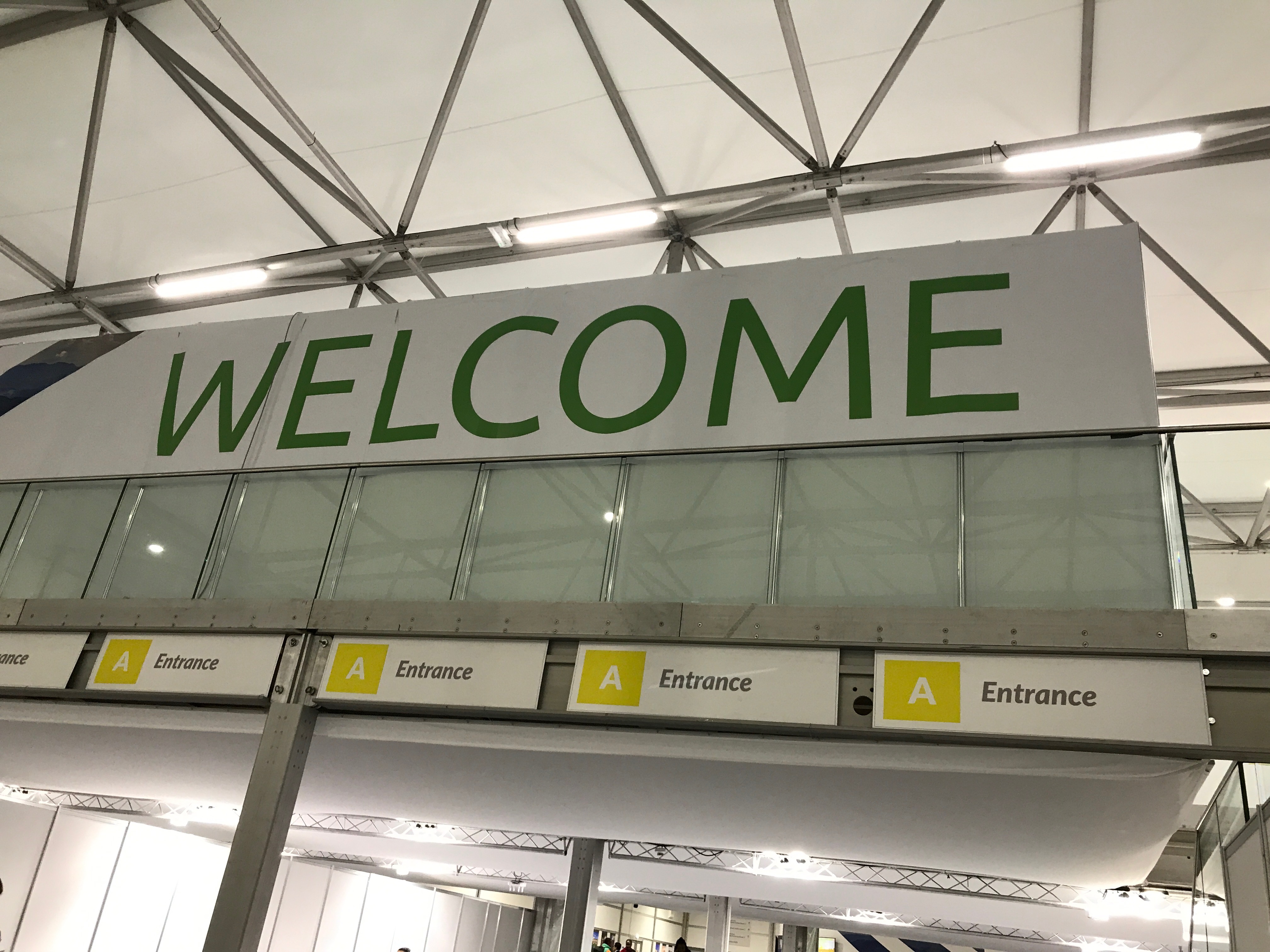
Only to discover that our badges won’t let us into the venue itself until Monday.
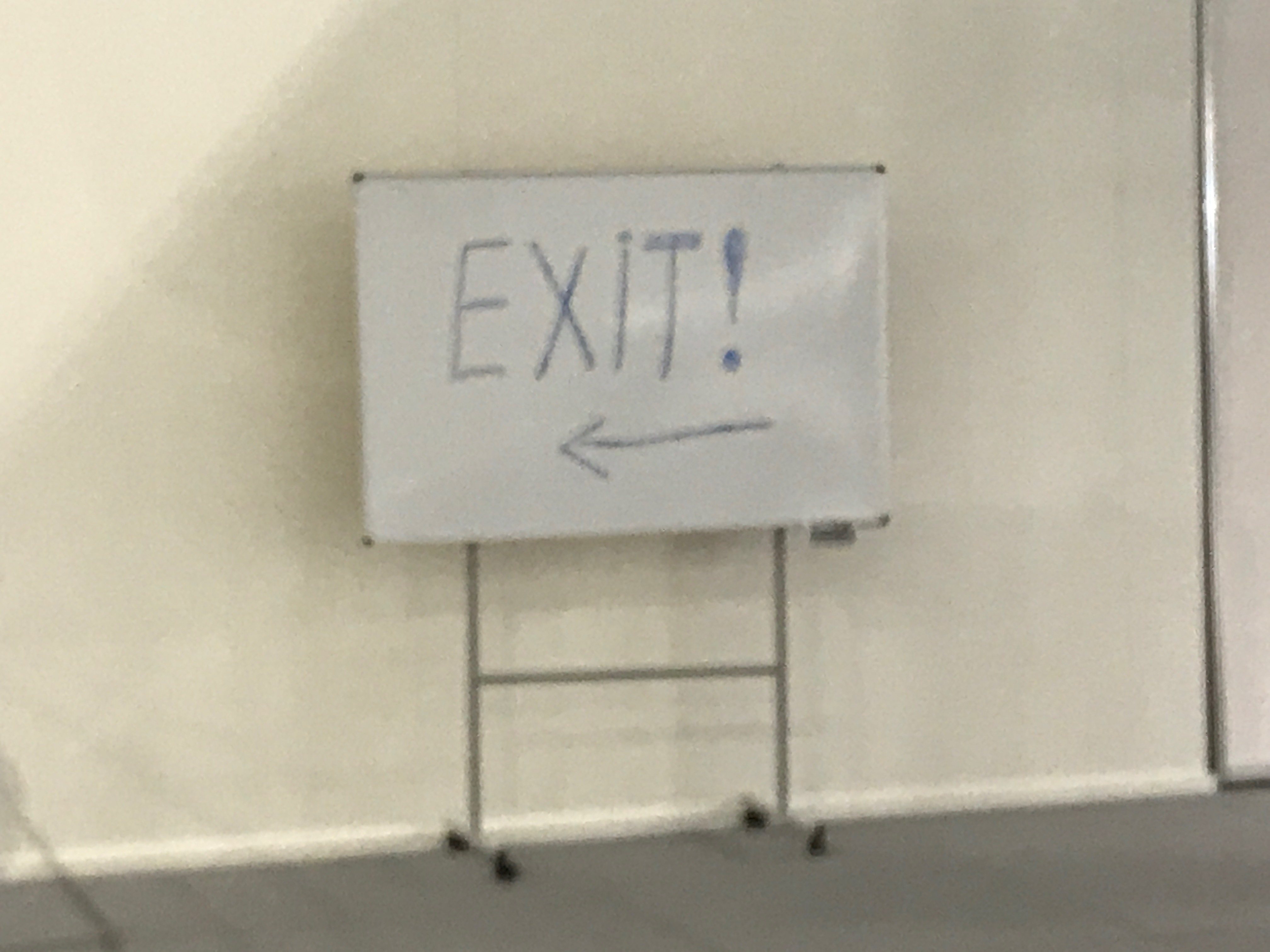
But wonderful Liz Nichols came out to greet us and tell us more about the functioning of the COP than our jetlagged brains could really process, much as we tried.
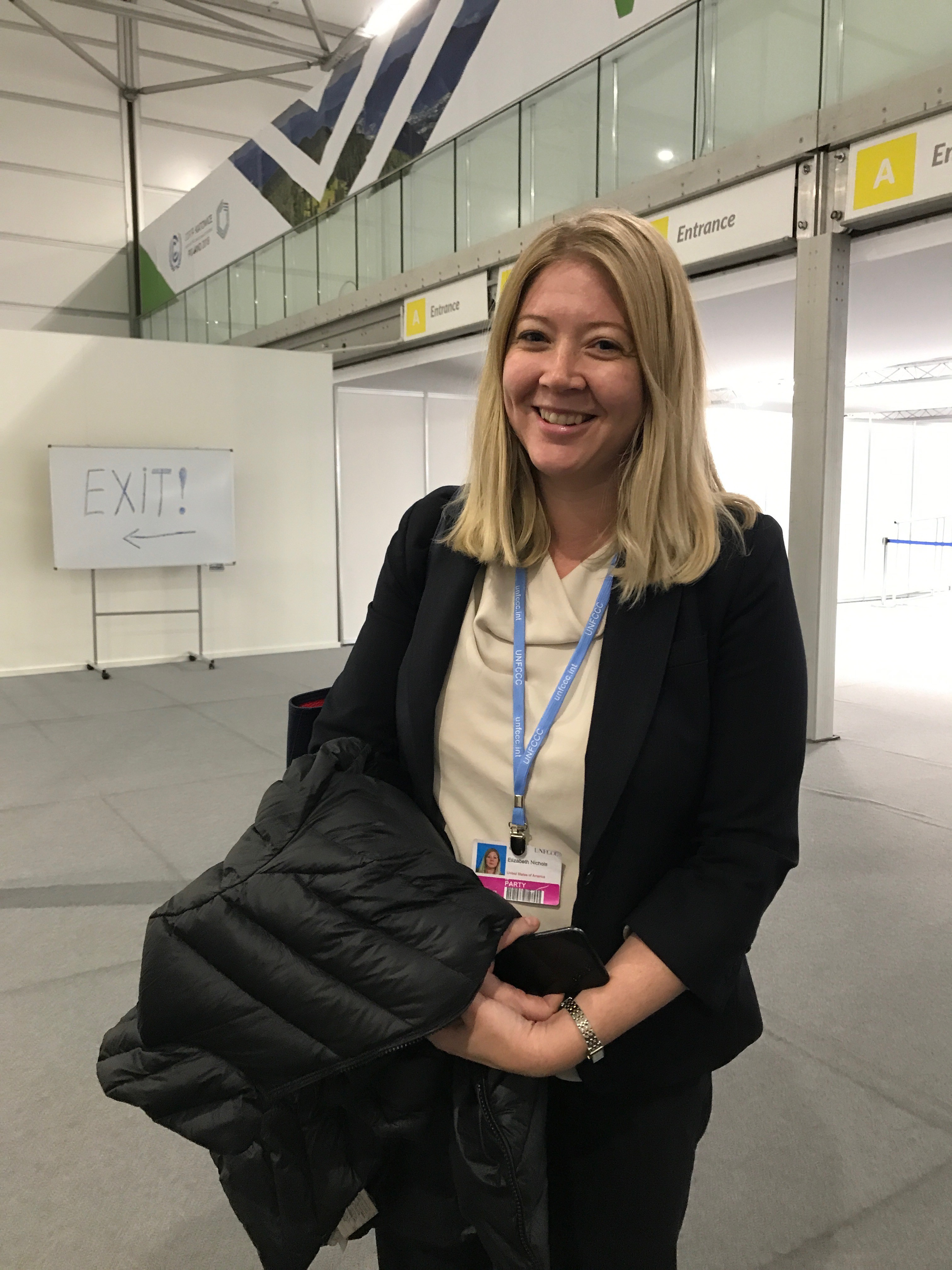
Off we go, into the darkening skies, past more police, in search of hotels…
Hard to believe we’re really here!
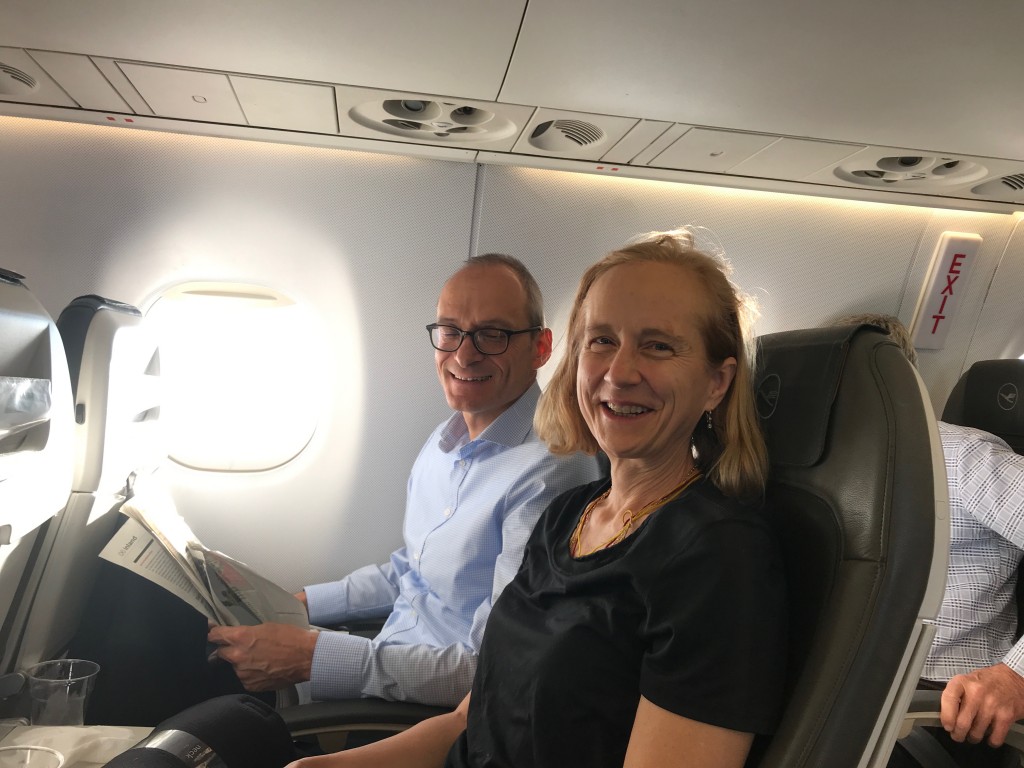
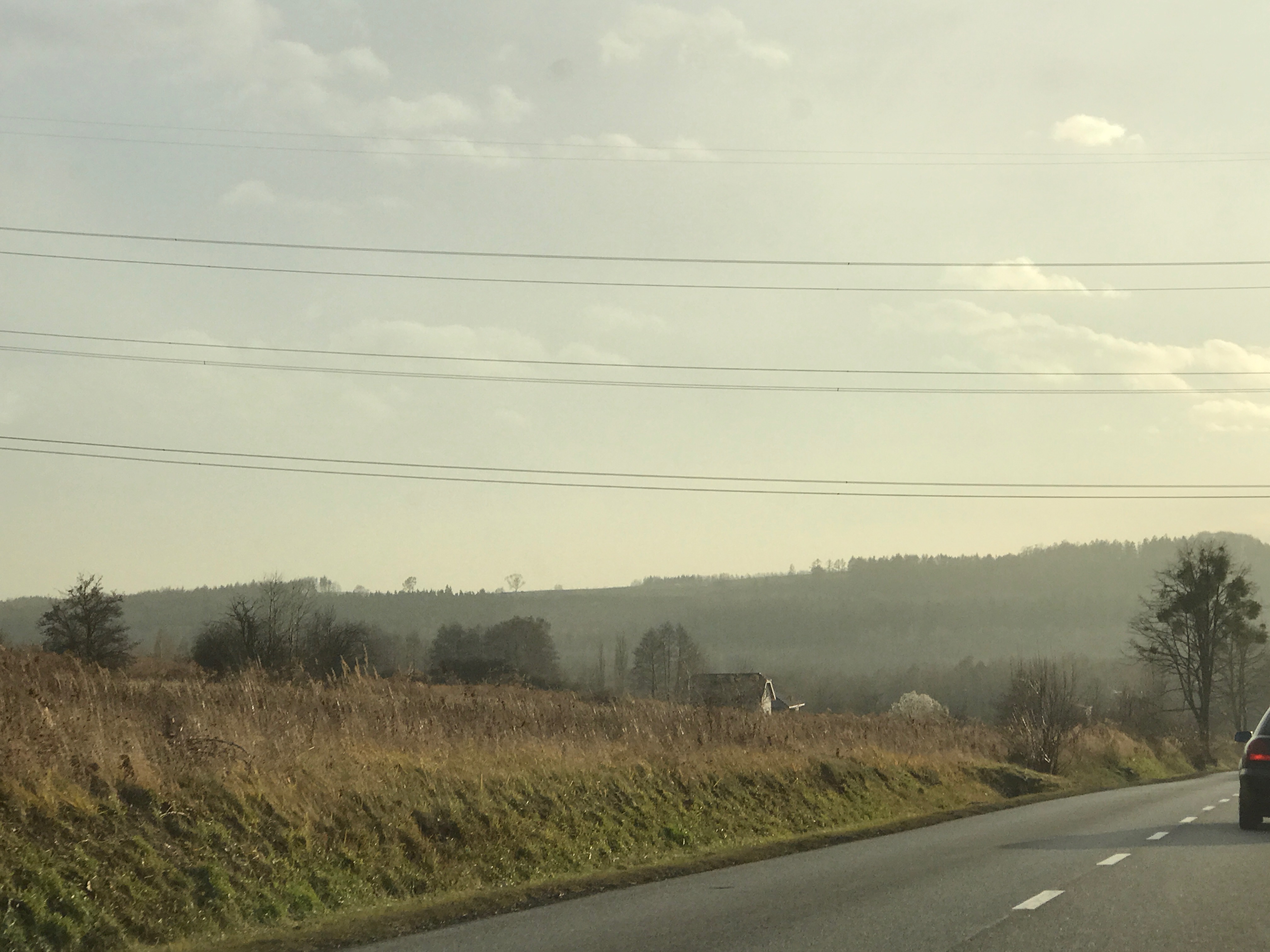
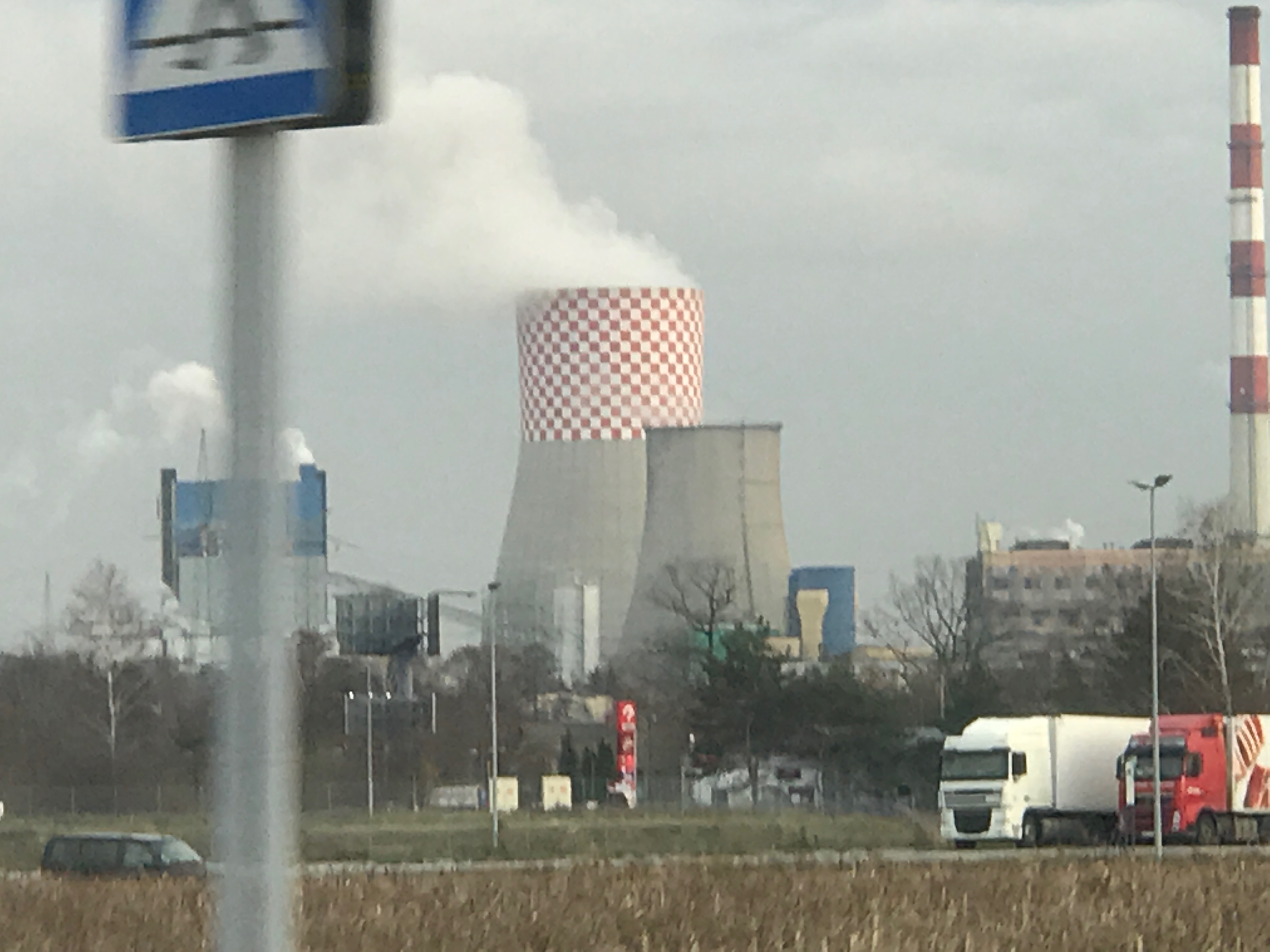
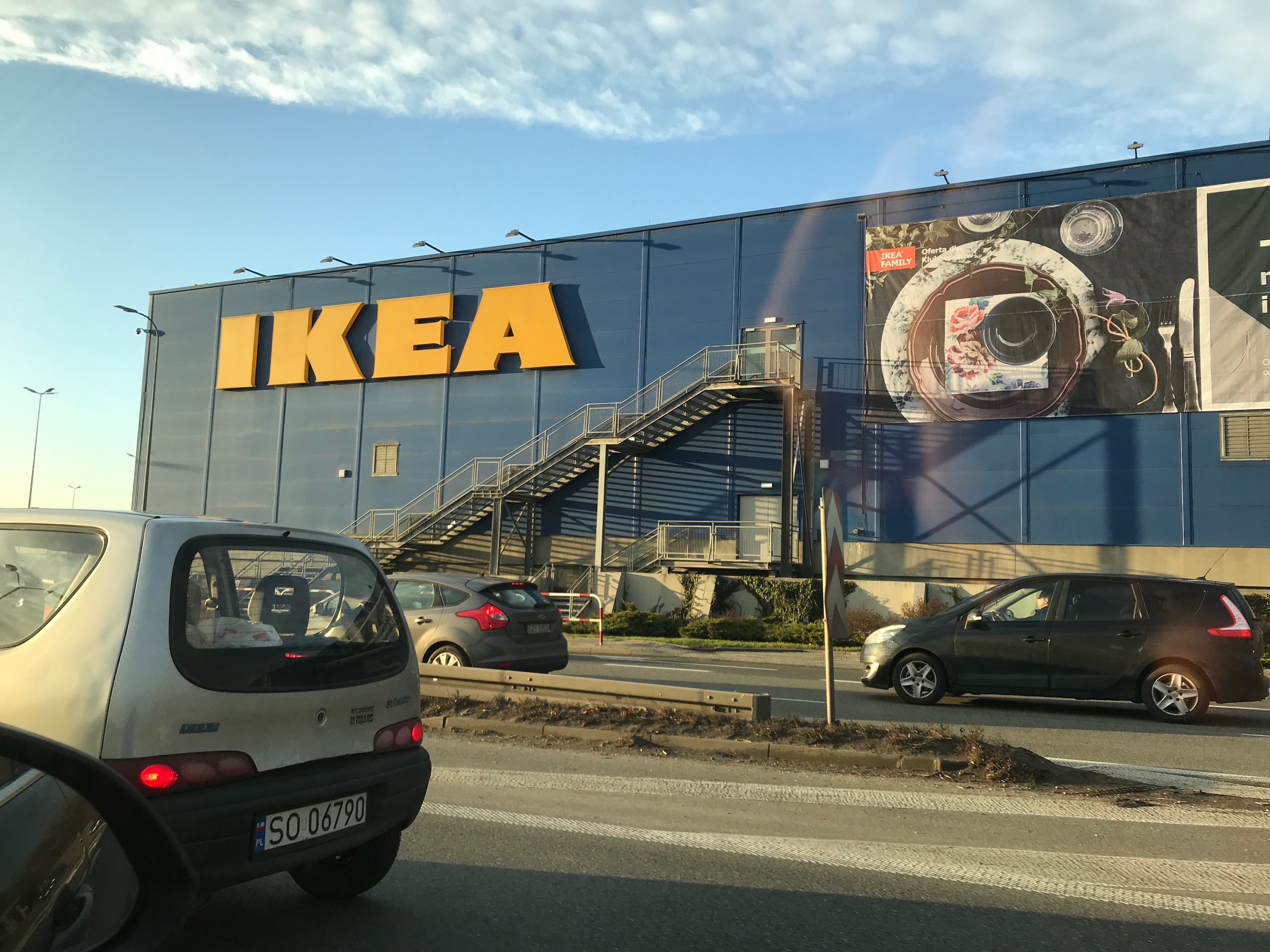
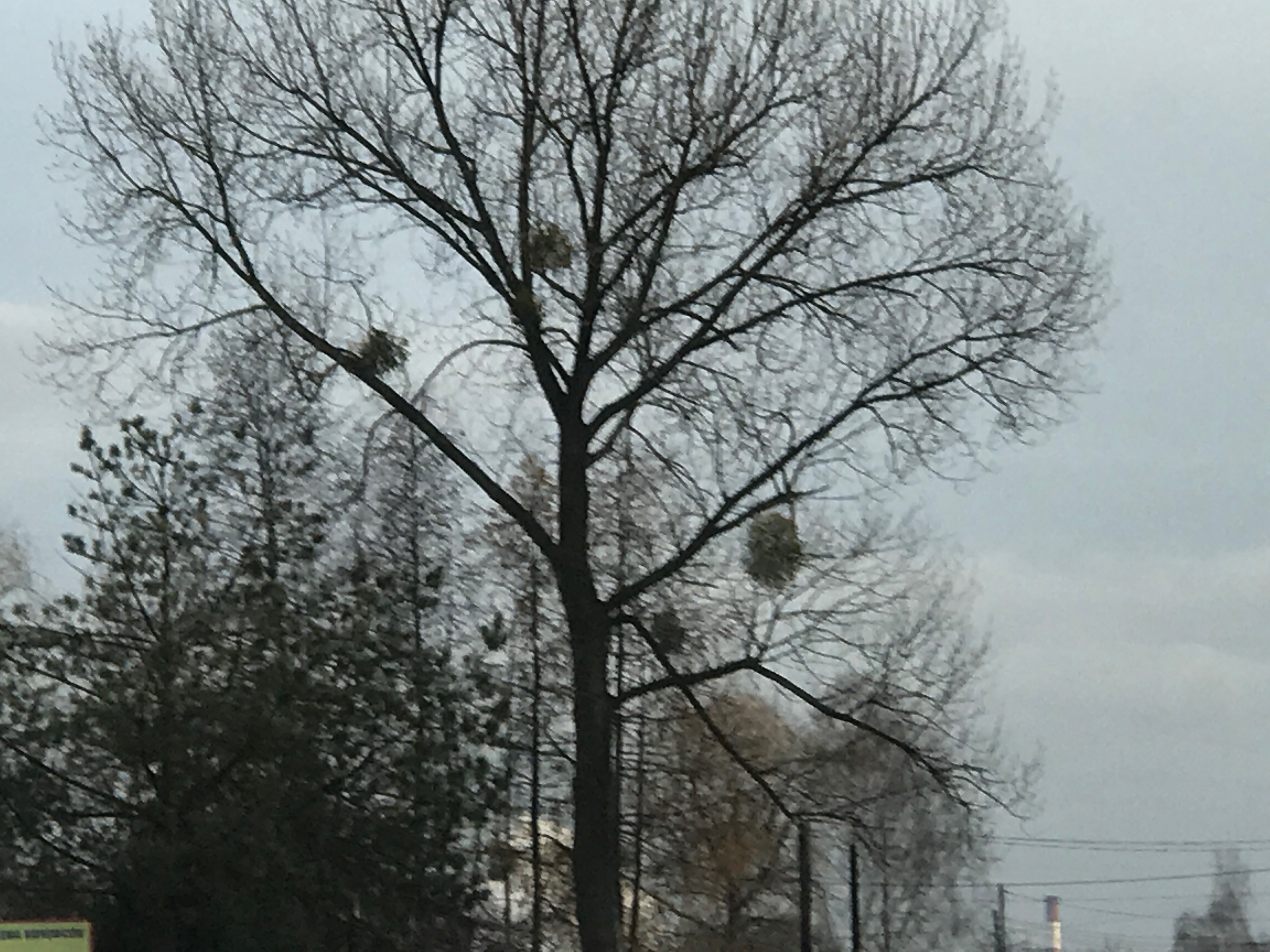
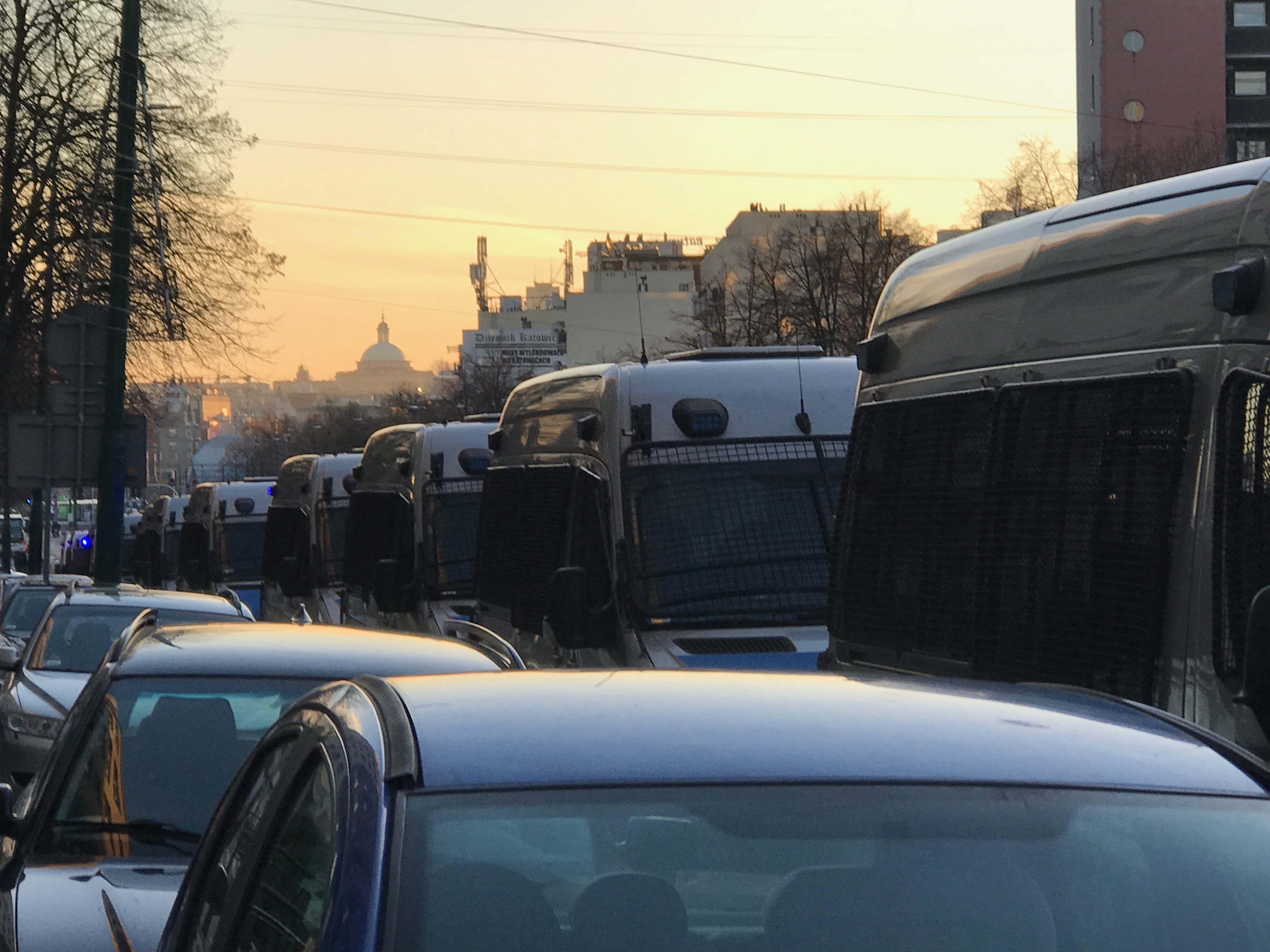
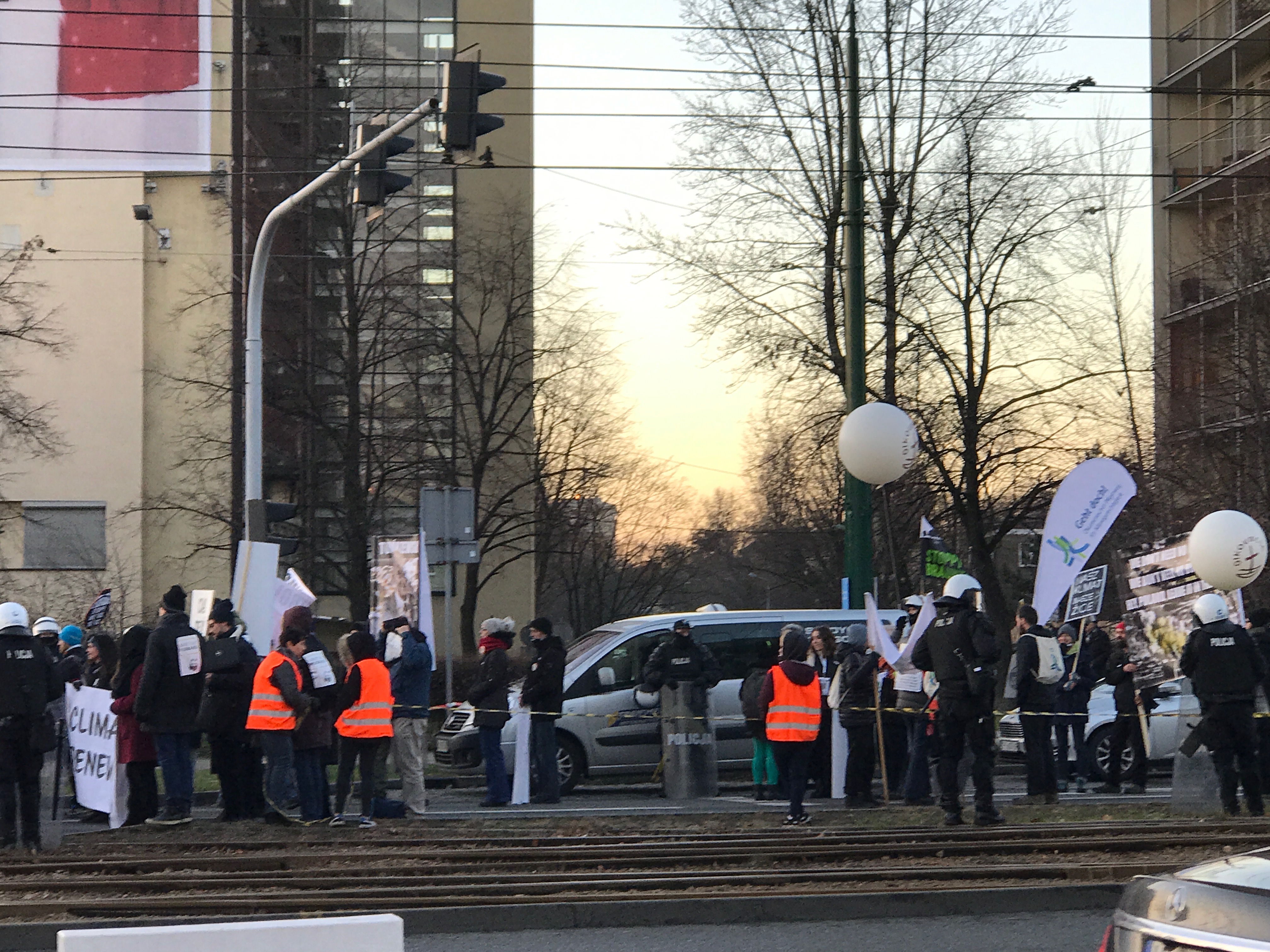
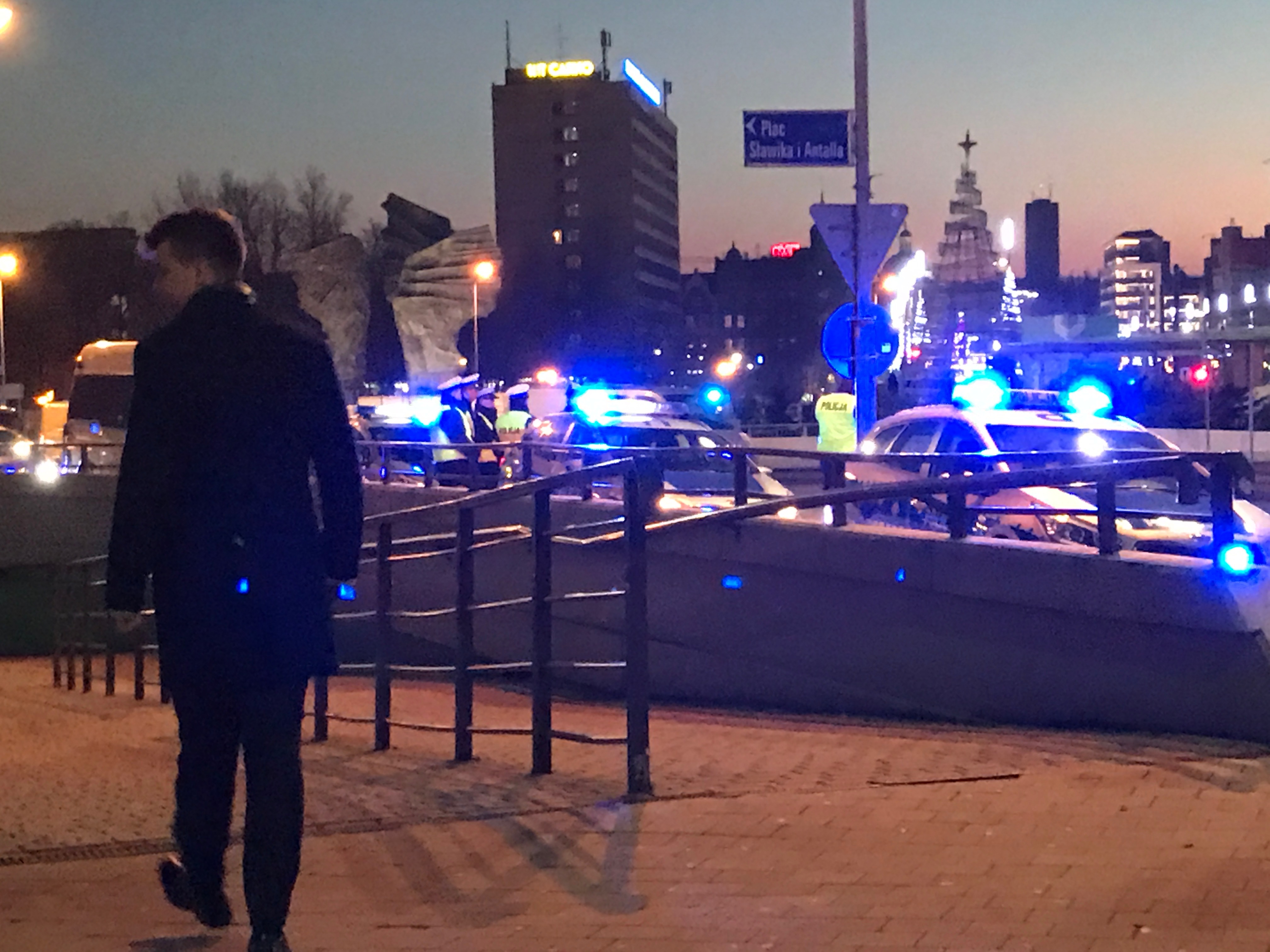
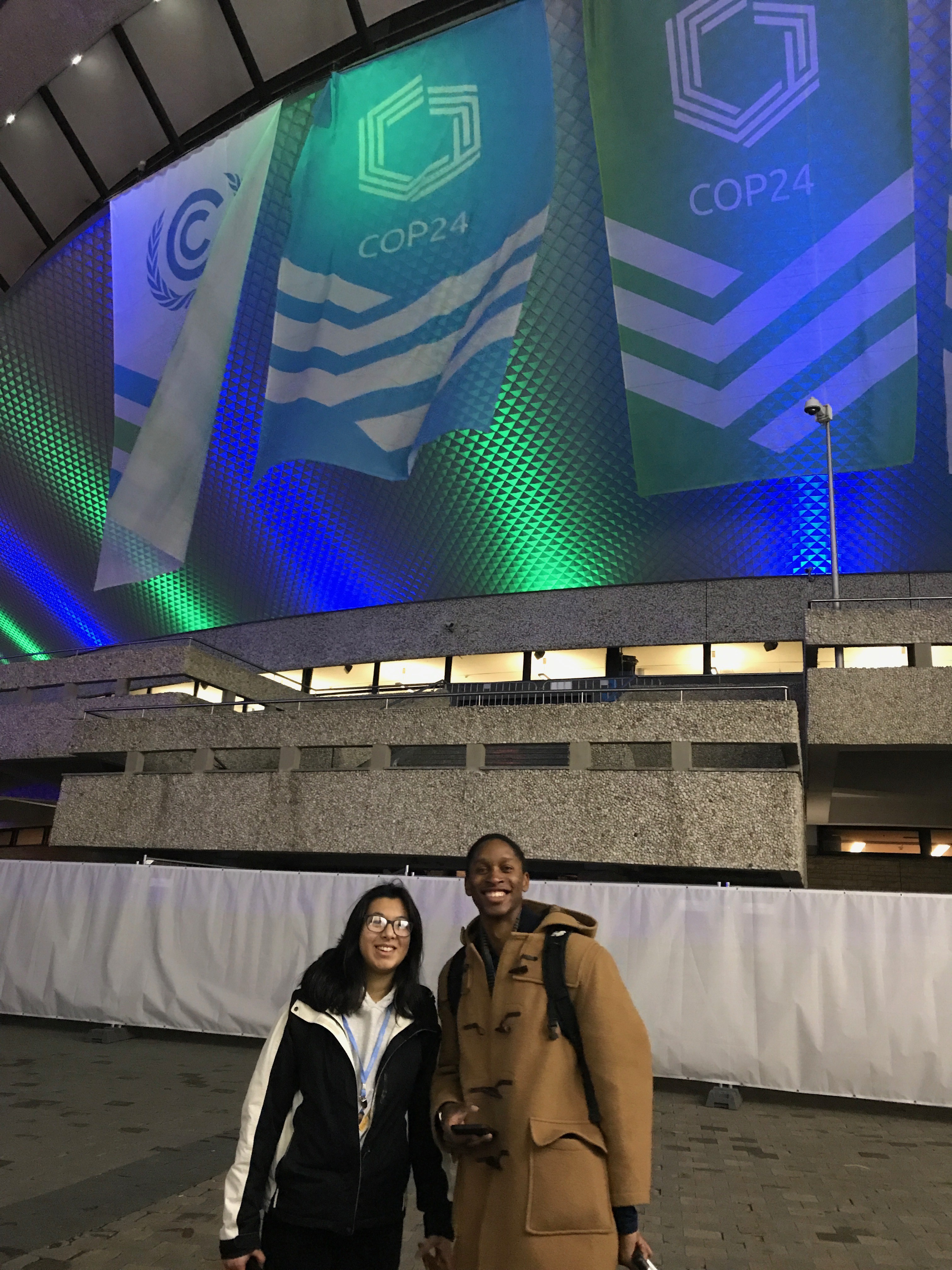
Welcome to Poland! I am glad you made it safely. I think we were all at the airport at the same time, but we were stuck in Z and I think you were in A. We did wave at you though.
Our plane to Katowice was similarly filled with COP24 attendees, as was our plane back to Frankfurt. It struck me the breadth of the types of people going to the conference, which you talk about in your post. So many interesting people from so many different places. That is one of the things I liked most about the conference.
Regarding your conversation with the cab driver, I got a bit of the feeling from local people in Katowice that they found the whole COP a bit funny. The area is historically (and I think still today) dependent on coal, which you can tell from the air quality, and I am not sure the town as a whole images a world past coal. I am sure I am generalizing here, but to me there was a bit of an undertone from the local people that made me think that they thought I was wasting my time.
The presence of police around the conference and basically everywhere in the city shocked me. It was not like that in Bonn last year. It gave the the feeling of authoritism to the whole event. I never got used to the feeling.
Have an excellent experience, I look forward to hearing more about what you are all up to as the week goes on!
Thanks for the great intro and travelogue, Betsy – I love seeing all the pictures! So interesting to hear about the other attendees, and about the reactions of the locals as well.
I think what you saw growing in the trees may be [mistletoe](https://en.wikipedia.org/wiki/Mistletoe) – it’s parasitic on trees and of course associated with Christmas (even here, where you never see it in any non-plastic form).
I’m really looking forward to hearing more reporting from you and the rest of the delegation.
Thanks, Chris and Eric. It’s great to hear from you both. Chris, the police are still intense today, but yesterday was astounding. I felt as if I was right in the middle of The Carbon Diaries.
Eric, thanks so much for the ID! Mistletoe! Of course! I love that! I especially love the fact that you knew that!
Betsy, I didn’t actually know what it was – but a bit of Google searching for “stuff growing in trees for Christmas decorations” (and related terms) eventually led me to the answer!
Hi my name is Alex, I’m from Media Pa. I would like to compliment all of you on how you guys came from all around the world just to support this cause.
Hi Alex, I agree: seeing people who have come to work on climate change all the way from Honduras or Nunavit or Nepal or Hong Kong (and the list goes on and on) is very encouraging. Not everything happening here is encouraging–and part of me worries a LOT about all the carbon that was emitted as all of us traveled here–but it seems very important for everyone to gather and try to push hard to find better ways of moving forward. What steps do you think we should be taking? Thank you for reading the blog!